
The Untouched Beauty of Savai'i Island
Savai'i Island, the largest island in Samoa, offers visitors an untouched paradise with its pristine beaches, lush rainforests, and vibrant culture. Unlike its busier counterpart, Upolu, Savai'i is a haven for those seeking tranquility and an authentic Samoan experience. The island's natural wonders include the spectacular Alofaaga Blowholes, where powerful jets of water shoot up from the rocky coastline, and the enchanting Afu Aau Waterfall, a perfect spot for a refreshing swim. The island is also rich in cultural heritage, with traditional villages where you can witness the Samoan way of life. Don't miss the opportunity to visit the Pulemelei Mound, an ancient pyramid-like structure shrouded in mystery. Savai'i's diverse marine life and coral reefs make it an ideal destination for snorkeling and diving enthusiasts. The island's laid-back atmosphere and friendly locals will make your stay truly memorable. Whether you're exploring the volcanic landscapes of Mount Matavanu or enjoying a scenic drive through the island's lush interior, Savai'i promises an adventure off the beaten path. Its unspoiled beauty and serene environment make it a perfect getaway for nature lovers and cultural enthusiasts alike.
Local tips in Savai'i Island
- Carry cash as ATMs are limited and not all places accept credit cards.
- Rent a car for convenience, as public transport is infrequent.
- Respect local customs and dress modestly when visiting villages.
- Bring reef-safe sunscreen to protect the coral reefs while snorkeling.
- Try local delicacies such as palusami and fresh seafood at village markets.
The Untouched Beauty of Savai'i Island
Savai'i Island, the largest island in Samoa, offers visitors an untouched paradise with its pristine beaches, lush rainforests, and vibrant culture. Unlike its busier counterpart, Upolu, Savai'i is a haven for those seeking tranquility and an authentic Samoan experience. The island's natural wonders include the spectacular Alofaaga Blowholes, where powerful jets of water shoot up from the rocky coastline, and the enchanting Afu Aau Waterfall, a perfect spot for a refreshing swim. The island is also rich in cultural heritage, with traditional villages where you can witness the Samoan way of life. Don't miss the opportunity to visit the Pulemelei Mound, an ancient pyramid-like structure shrouded in mystery. Savai'i's diverse marine life and coral reefs make it an ideal destination for snorkeling and diving enthusiasts. The island's laid-back atmosphere and friendly locals will make your stay truly memorable. Whether you're exploring the volcanic landscapes of Mount Matavanu or enjoying a scenic drive through the island's lush interior, Savai'i promises an adventure off the beaten path. Its unspoiled beauty and serene environment make it a perfect getaway for nature lovers and cultural enthusiasts alike.
When is the best time to go to Savai'i Island?
Iconic landmarks you can’t miss
Le Lagoto Resort & Spa
Discover the beauty of Samoa at Le Lagoto Resort & Spa, where luxury meets the tranquility of island life in Fagamalo, Savai'i.
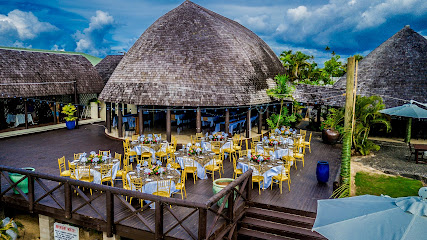
Afu Aau Waterfalls
Experience the breathtaking beauty and serenity of Afu Aau Waterfalls in Vailoa, a must-visit natural attraction in Samoa.
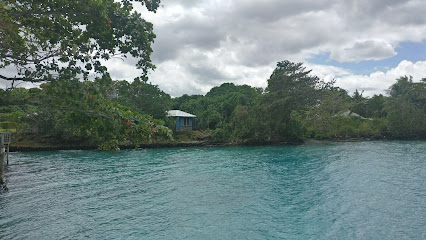
Alofaaga Blowholes
Experience the awe of nature at Alofaaga Blowholes, where the sea's power creates spectacular water displays on the stunning shores of Samoa.
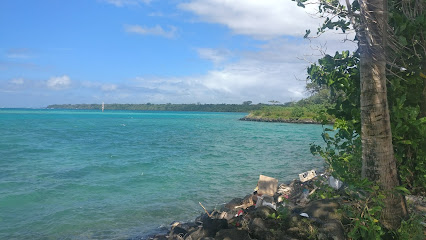
Lauiula Beach Fales
Discover the serene beauty and authentic Samoan experience at Lauiula Beach Fales, your perfect beachfront retreat in Salelologa.
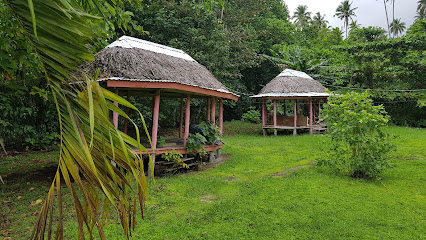
Savaii Lagoon Resort
Discover tranquility and exquisite flavors at Savaii Lagoon Resort, your ultimate tropical getaway in Samoa, blending relaxation with local culinary delights.

Swimming With Turtles
Experience the thrill of swimming with turtles in Sato'alepai, a unique adventure that connects you with nature in stunning tropical waters.
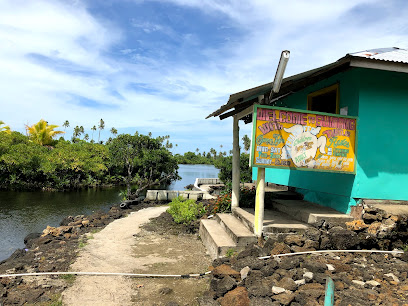
Falealupo Beach Fales
Discover the tranquility of Falealupo Beach Fales, where traditional Samoan beach fales meet stunning ocean views and lush landscapes.

Va-i-moana Seaside Lodge
Discover the serene beauty and warm hospitality of Va-i-moana Seaside Lodge in Auala, Samoa. Experience luxurious accommodations and breathtaking ocean views.
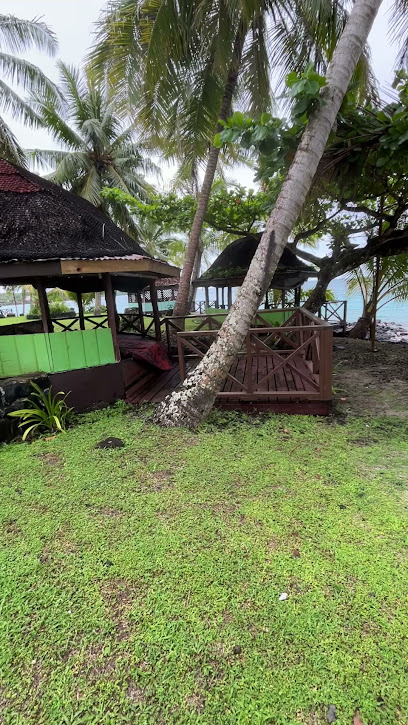
Dive Savaii
Experience the vibrant underwater world of Samoa at Dive Savaii, the ultimate destination for diving and snorkeling enthusiasts.
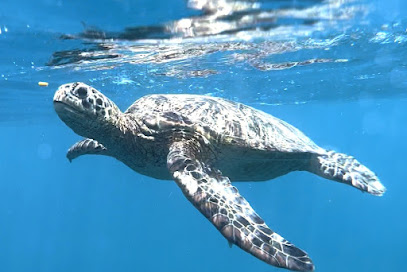
Joelan Beach Fale
Experience the tranquil beauty of Samoa at Joelan Beach Fale, where traditional hospitality meets stunning coastal views.

Savai'i
Discover the pristine beauty and rich culture of Savai'i, Samoa's largest island, where adventure and tranquility await every traveler.
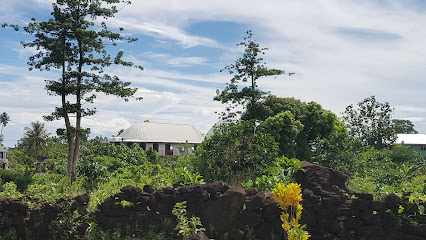
Savai'i Harbourside Café & Pizza Bar
Discover the flavors of Samoa at Savai'i Harbourside Café & Pizza Bar, where stunning ocean views meet delicious cuisine in a relaxed setting.
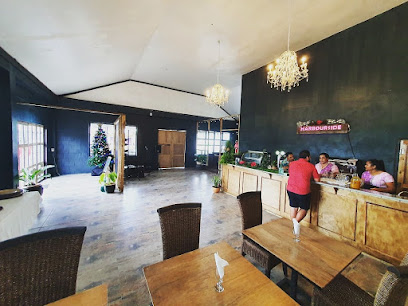
Florence's Place
Discover the heart of Samoa at Florence's Place, a cozy bed and breakfast where authentic hospitality meets stunning coastal views.
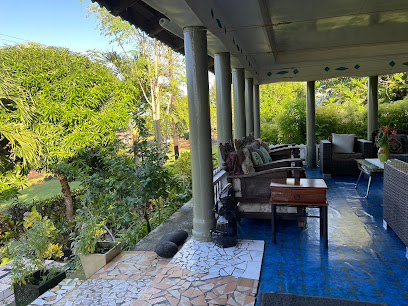
Jet Over Hotel
Discover the charm of Samoan hospitality at Jet Over Hotel in Salelologa, a perfect blend of tradition and modern comfort.

Salelologa Wharf
Experience the vibrant life and stunning views at Salelologa Wharf, the gateway to Savai'i's breathtaking landscapes and rich Samoan culture.
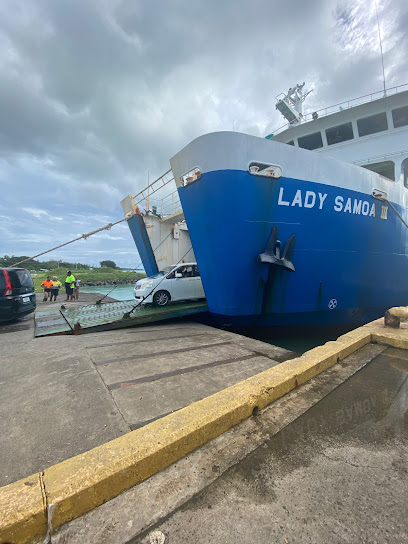
Unmissable attractions to see
To-Sua Ocean Trench
Explore the breathtaking To-Sua Ocean Trench in Samoa, a stunning natural swimming hole surrounded by lush greenery and dramatic cliffs.
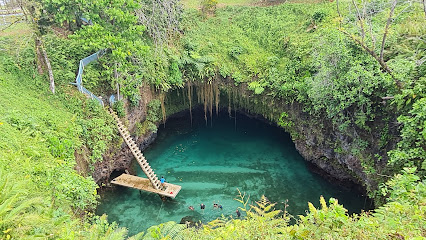
Piula Cave Pool
Explore the stunning Piula Cave Pool, a tranquil oasis in Faleapuna, Samoa, where crystal-clear waters meet breathtaking limestone caves.
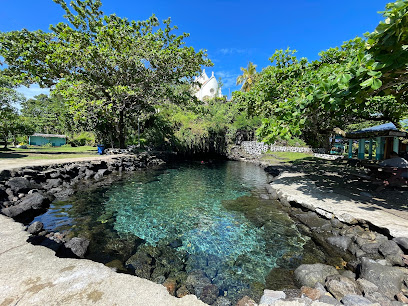
Papaseea Sliding Rocks
Discover the natural thrill of Papaseea Sliding Rocks, where adventure and beauty collide in Samoa's stunning landscapes.
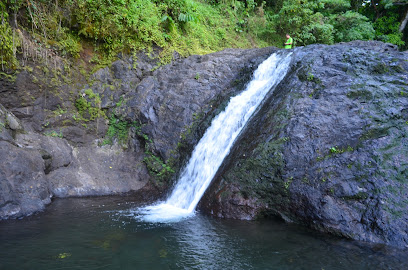
Falealupo Canopy Walkway
Explore the Falealupo Canopy Walkway for breathtaking views and an unforgettable adventure high above Samoa's stunning rainforest.
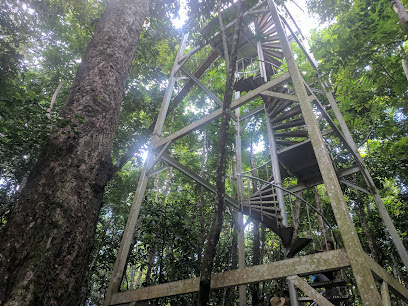
La'auolola lava tube caves
Unveil the mystery of La'auolola Lava Tube Caves, a stunning natural attraction in A'opo, Samoa, showcasing volcanic wonders and unique biodiversity.
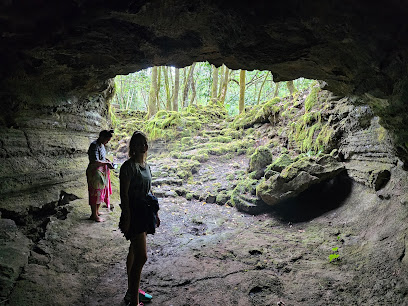
Sinaloa Waterfall
Explore the breathtaking Sinaloa Waterfall in Palauli, a serene oasis surrounded by nature's lush beauty, ideal for relaxation and adventure.

Pulemelei Ancient Mound
Explore the Pulemelei Ancient Mound, an iconic archaeological site in Samoa that reveals the rich history and culture of the island's ancient civilization.
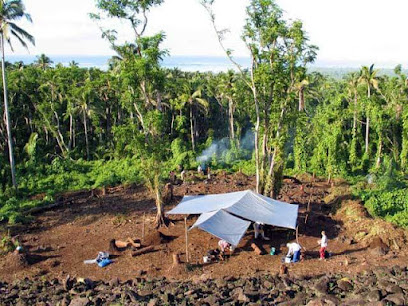
Faiaai beach House of Paradise
Experience the serene beauty of Faiaai Beach House of Paradise in Vaipua, where tranquility meets stunning ocean views and relaxing beach vibes.
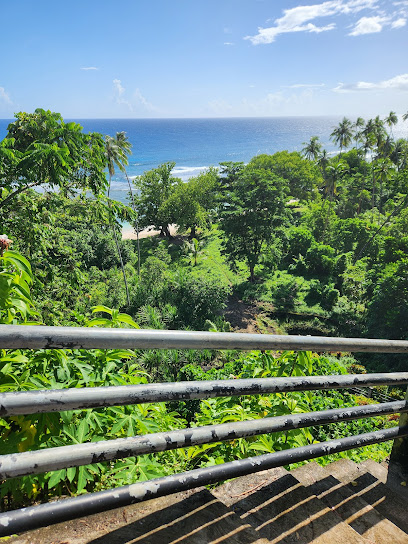
Mauga Tafua Lookout
Discover the breathtaking vistas at Mauga Tafua Lookout, a hidden gem in Tafua-tai offering stunning panoramic views of Samoa's natural beauty.
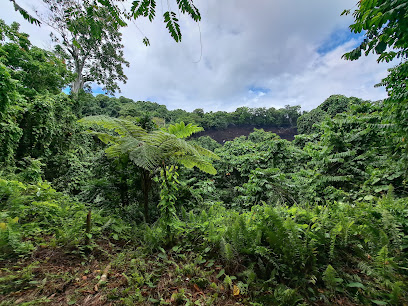
Essential places to dine
Paddles Restaurant
Experience authentic Samoan cuisine at Paddles Restaurant in Apia - where local flavors meet breathtaking coastal views.
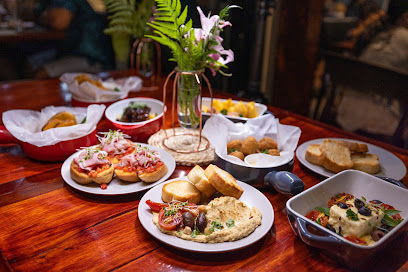
Giordano's Pizzeria // Samoa
Experience the best Italian pizza in Apia at Giordano's Pizzeria – where authentic flavors meet Samoan charm.
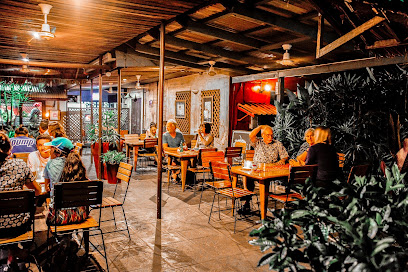
Le Lagoto Resort & Spa
Discover tranquility and adventure at Le Lagoto Resort & Spa in Savai'i – your ultimate tropical getaway.
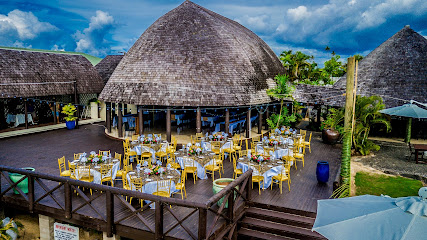
Amoa Resort Savaii
Discover culinary excellence and breathtaking views at Amoa Resort Savaii - your tropical oasis in Samoa.
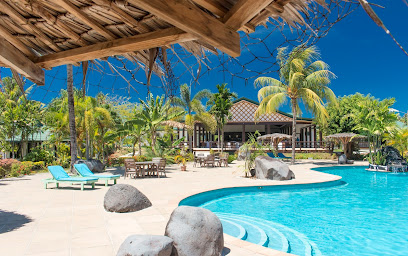
Scalini's Restaurant
Experience authentic Samoan flavors at Scalini's Restaurant in Apia—where every meal tells a story.
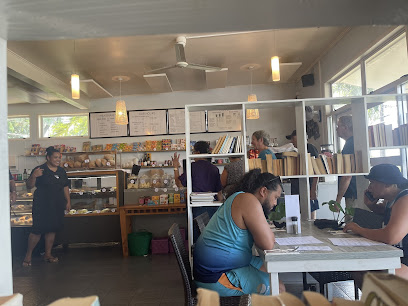
Savaii Lagoon Resort
Experience unparalleled dining and relaxation at Savaii Lagoon Resort - your tropical escape in beautiful Samoa.

Island Grill - Steak & Seafood
Experience authentic Samoan cuisine at Island Grill - Steak & Seafood in Apia, where fresh seafood meets perfectly grilled steaks for an unforgettable dining adventure.
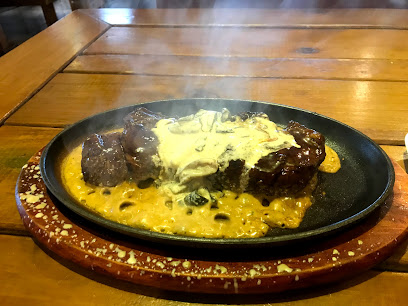
Lusia's Lagoon Chalets
Discover Lusia's Lagoon Chalets - your serene escape in Samoa featuring comfortable accommodations, delicious dining options, and beautiful swimming spots.

Savai'i Harbourside Café & Pizza Bar
Experience authentic Samoan cuisine and delightful pizzas at Savai'i Harbourside Café & Pizza Bar, where every meal comes with breathtaking views.
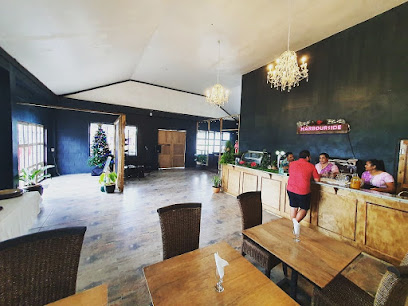
Bella's Kitchen
Discover authentic Samoan flavors at Bella's Kitchen in Apia—where delicious meets tradition in every bite.
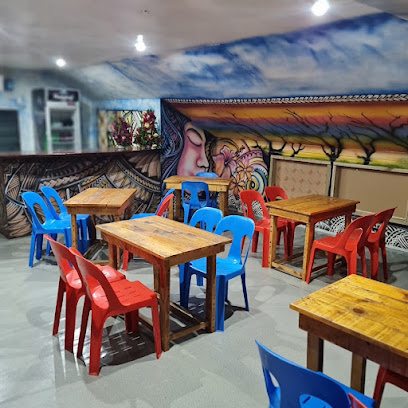
Burger Bills - Vaitele
Discover mouthwatering burgers and local flavors at Burger Bills - Vaitele, where every bite tells a story of Samoa's culinary heritage.
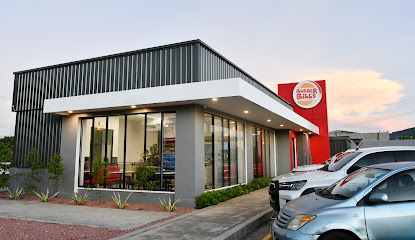
Barefoot Bar and Restaurant
Experience the best of Samoan cuisine at Barefoot Bar and Restaurant, where delicious food meets breathtaking coastal views.
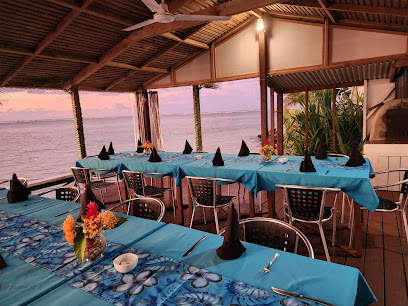
Salvation & Grace
Experience authentic Samoan cuisine at Salvation & Grace in Safune—where every dish tells a story and every meal is memorable.
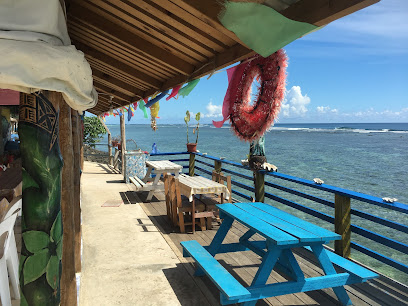
DMC
Discover DMC in Salelologa - where authentic Samoan flavors meet contemporary culinary artistry in a welcoming atmosphere.
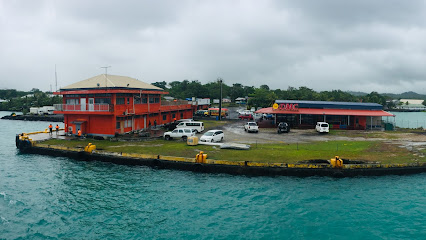
TEN BELOW SHACK
Experience authentic Samoan flavors at Ten Below Shack in Apia - a culinary gem where tradition meets taste.
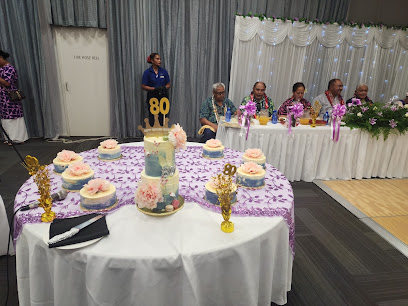
Markets, malls and hidden boutiques
Pacific Jewell Gift Shop & Garden Café
Explore unique gifts and savor delightful flavors at the Pacific Jewell Gift Shop & Garden Café in Apia, Samoa - a perfect blend of shopping and dining.
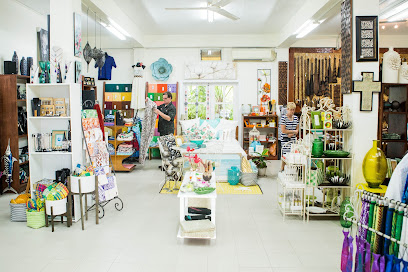
Janet's Samoa
Explore Janet's Samoa: Your destination for unique Samoan crafts and cultural treasures in the heart of Apia.
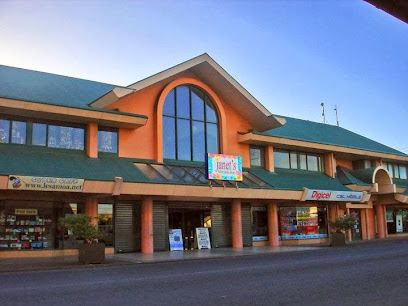
Local Village Shop
Explore the heart of the community at the Local Village Shop, where local crafts and fresh produce await every traveler.
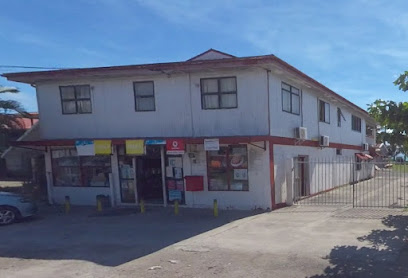
Le-Ata Samoa
Explore the vibrant culture of Samoa through unique handcrafted gifts and souvenirs at Le-Ata Samoa in Apia.
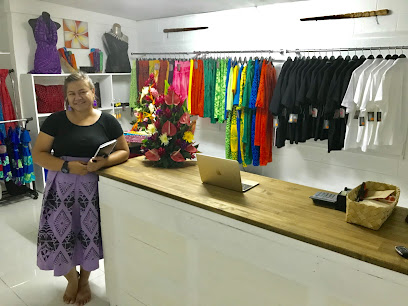
Tiatia KALECS Store
Explore the vibrant offerings of Tiatia KALECS Store in Salelologa, where local flavors and everyday essentials await.

Janet's
Explore Janet's Gift Shop for authentic Samoan crafts and cultural treasures that tell the island's story through artistry and tradition.
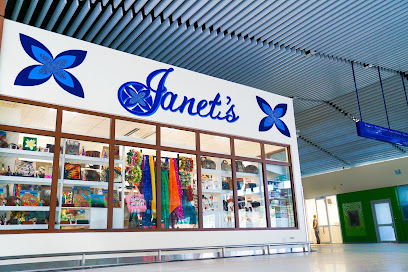
Tofilau Tauvaga & Silia's Store
Experience the heart of Savaii at Tofilau Tauvaga & Silia's Store, a friendly convenience store offering local delights and essentials.
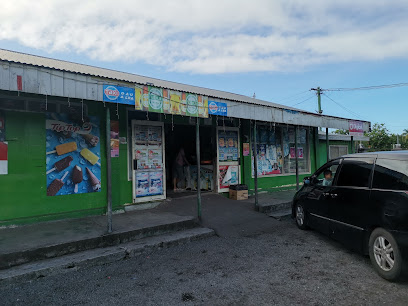
Sola's Shop (Basics)
Discover local treasures at Sola's Shop, a charming general store in Gagaifoolevao offering unique souvenirs and local delicacies.
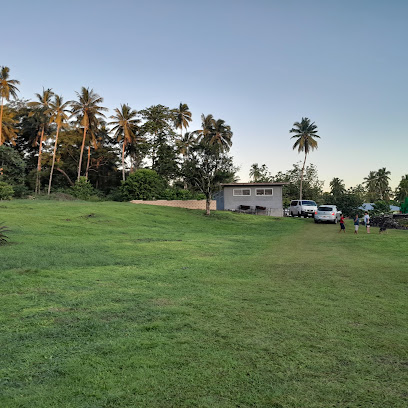
IT Zone savai'i
Explore cutting-edge technology at IT Zone Savaii, the ultimate electronics store in Salelologa, Samoa, for all your tech needs.
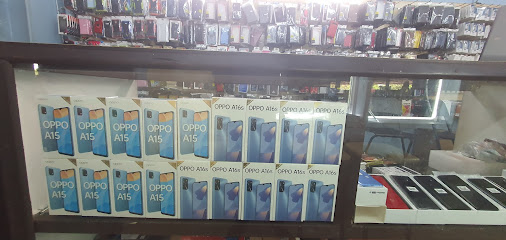
Adriana’s Boutique Samoa
Discover unique gifts and authentic Samoan crafts at Adriana’s Boutique Samoa, where culture meets creativity in every handcrafted item.
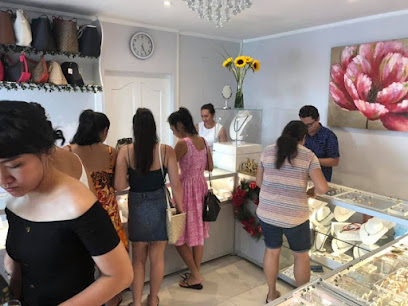
No.1 shop
Experience the flavors of Samoa at No.1 Shop, a delightful grocery store in Salelologa, offering local produce and unique souvenirs.
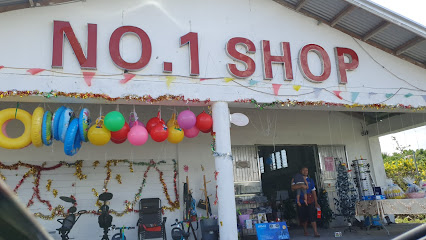
Otila's Store
Discover Otila's Store in Faleasiu - the ultimate convenience stop for tourists seeking local products and essentials.

Genedyva's Store Faleolo
Explore Genedyva's Store in Faleolo for a taste of local culture and convenience while enjoying your Samoan adventure.
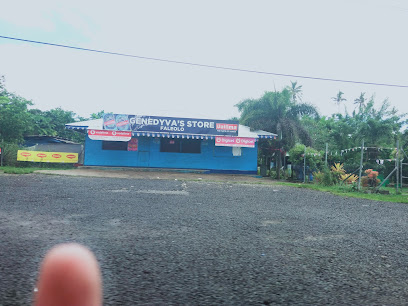
Alofaifo Store
Discover authentic Samoan crafts and local goods at Alofaifo Store, a must-visit shopping destination in the heart of Apia.

Faaleo Store
Explore the vibrant local culture and unique products at Faaleo Store in Fale'ula, a hidden gem for authentic Samoan souvenirs and essentials.

Essential bars & hidden hideouts
Le Lagoto Resort & Spa
Experience the ultimate tropical retreat at Le Lagoto Resort & Spa, where luxury meets natural beauty in Savai’i, Samoa.
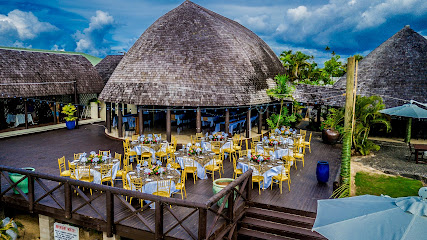
The Edge Marina, Samoa
Experience the vibrant charm of The Edge Marina in Samoa – the perfect blend of relaxation, delicious food, and stunning ocean views.
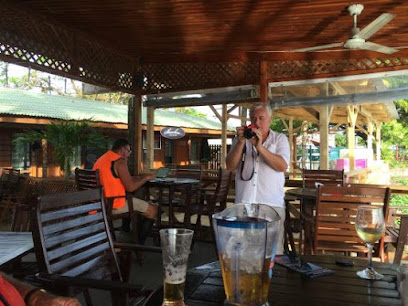
Amoa Resort Savaii
Experience the beauty of Savaii at Amoa Resort, where relaxation meets adventure in a tropical paradise.
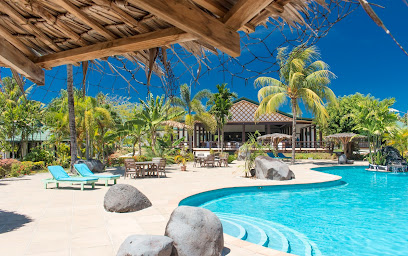
Savaii Lagoon Resort
Experience the best of Samoan cuisine and hospitality at Savaii Lagoon Resort, a serene retreat on the stunning shores of Fagamalo.

Savai'i
Explore Savai'i, Samoa's largest island, where stunning landscapes, rich culture, and adventure await in an untouched paradise.
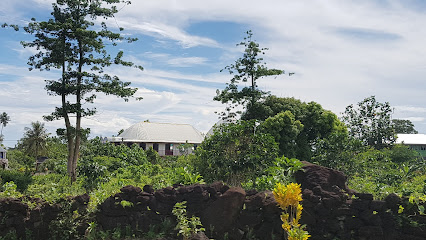
Savai'i Harbourside Café & Pizza Bar
Discover the flavors of Samoa at Savai'i Harbourside Café & Pizza Bar, where local ingredients meet international cuisine in a stunning harborside setting.
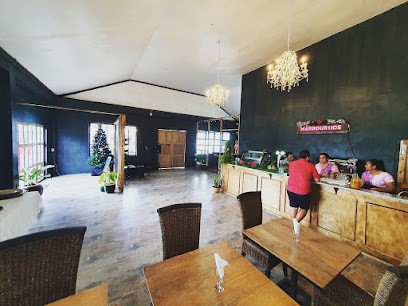
Cocktails On the Rocks
Experience the vibrant atmosphere and stunning views at Cocktails On the Rocks, Apia's premier bar for delicious drinks and tropical relaxation.
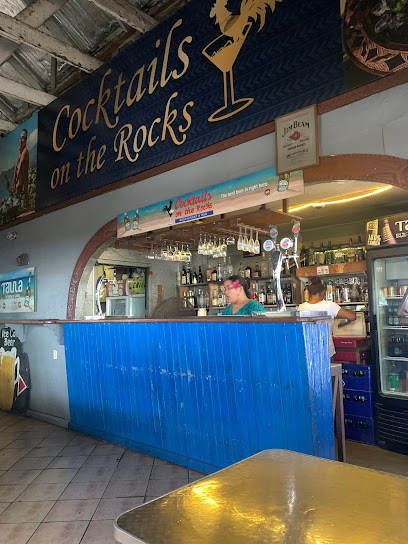
Barefoot Bar and Restaurant
Experience the best of Samoan cuisine with breathtaking ocean views at Barefoot Bar and Restaurant in Fagamalo.
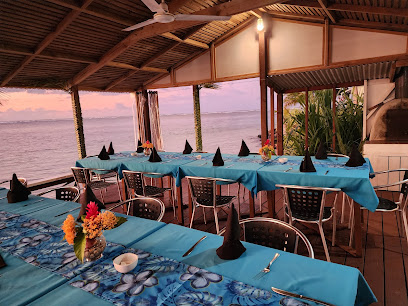
JP Bar
Discover the lively JP Bar in Apia, where vibrant music, quick service, and a welcoming atmosphere create the perfect night out.
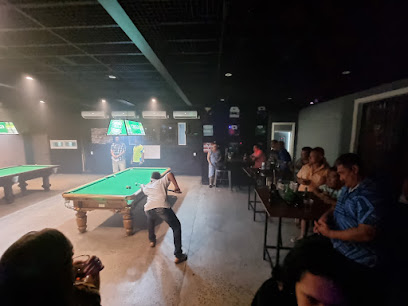
Ieu and Winnie's Islands View Motel
Discover the charm of Ieu and Winnie's Islands View Motel in Salelologa, a perfect blend of cozy stays and delicious local cuisine.
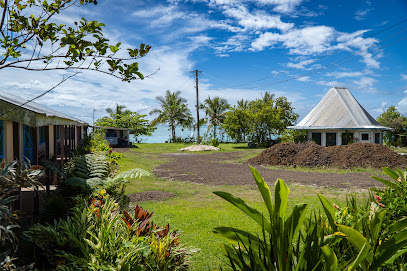
Y-Not Lounge Bar Samoa
Discover the lively spirit of Samoa at Y-Not Lounge Bar, where tropical cocktails and vibrant atmosphere await you in Apia.

Kevin sisson
Experience the vibrant nightlife at Kevin Sisson Bar in Salua, where friendly atmosphere and refreshing drinks await every visitor.

Solent Bar
Experience the lively atmosphere of Solent Bar in Mulifanua, where tropical cocktails and vibrant nightlife await you.

Larry
Experience the vibrant atmosphere and local flavors at Larry, the must-visit bar in Vaitele, Samoa, perfect for tourists seeking fun and relaxation.
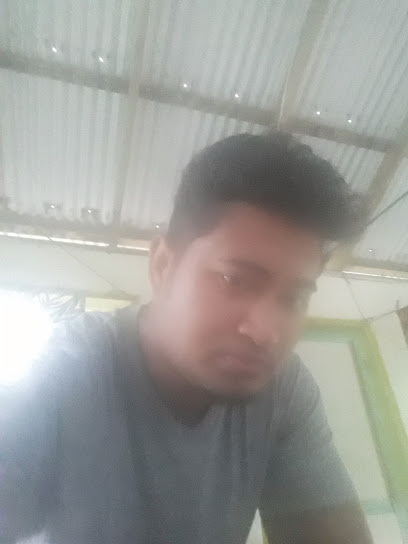
The Lobby Bar
Experience the vibrant atmosphere and tropical cocktails at The Lobby Bar in Apia, a perfect retreat for relaxation amidst the beauty of Samoa.

Local Phrases about Savai'i Island
-
- HelloTalofa
[Tah-loh-fah] - GoodbyeFa
[Fah] - YesIoe
[Ee-oh-eh] - NoLeai
[Leh-eye] - Please/You're welcomeFa'amalie
[Fah-ah-mah-lee-eh] - Thank youFa'afetai
[Fah-ah-feh-tie] - Excuse me/SorryTulou
[Too-loh] - How are you?O ai oe?
[Oh-eye-oh-eh] - Fine. And you?Lelei. O a a oe?
[Leh-leh-ee. Oh-ah-ah-oh-eh] - Do you speak English?E te lelei ona tusi i le Iniselani?
[Eh teh leh-leh-ee oh-nah too-see ee leh ee-nee-seh-lah-nee] - I don't understandE le mafai ona malamalama
[Eh leh mah-feye oh-nah mah-lah-mah-lah-mah]
- HelloTalofa
-
- I'd like to see the menu, pleaseE fia va'ai le meaai, fa'amalie
[Eh fee-ah vah-ah-ee leh meh-ah-eye, fah-ah-mah-lee-eh] - I don't eat meatE le ouai mea'ai
[Eh leh oh-why meh-ah-eye] - Cheers!Manuia!
[Mah-noo-ee-ah] - I would like to pay, pleaseE fia tu'uina le totogi, fa'amalie
[Eh fee-ah too-oo-ee-nah leh toh-toh-gee, fah-ah-mah-lee-eh]
- I'd like to see the menu, pleaseE fia va'ai le meaai, fa'amalie
-
- Help!Tulou!
[Too-loh] - Go away!Alu i le aga!
[Ah-loo ee leh ah-nga] - Call the Police!Vala'au le Polisi!
[Vah-lah-ah-oo leh Poe-lee-see] - Call a doctor!Vala'au foma'i!
[Vah-lah-ah-oo foh-mah-ee] - I'm lostUa ou taumafai
[Oo-ah oh tah-oo-mah-fye] - I'm illUa ou mativa
[Oo-ah oh mah-tee-vah]
- Help!Tulou!
-
- I'd like to buy...E fia fa'atau...
[Eh fee-ah fah-ah-tah-oo] - I'm just lookingO le a ou tatala
[Oh leh ah oh tah-tah-lah] - How much is it?E lea se uiga
[Eh leh-ah seh oo-ee-gah] - That's too expensiveE lelei le totogi
[Eh leh-leh-ee leh toh-toh-gee] - Can you lower the price?E mafai ona fa'atagata le totogi?
[Eh mah-fye oh-nah fah-ah-tah-gah-tah leh toh-toh-gee]
- I'd like to buy...E fia fa'atau...
-
- What time is it?O a le taimi?
[Oh ah leh tah-ee-mee] - It's one o'clockO le tasi taimi
[Oh leh tah-see tah-ee-mee] - Half past (10)I le a lefulu
[Ee leh ah leh-foo-loo] - MorningVaveao
[Vah-veh-ah-oh] - AfternoonAfiafi
[Ah-fee-ah-fee] - EveningIli
[Ee-lee] - YesterdayAnanafi
[Ah-nah-nah-fee] - TodayLe aso nei
[Leh ah-so neh-ee] - TomorrowAso nei
[Ah-so neh-ee] - 1Tasi
[Tah-see] - 2Lua
[Loo-ah] - 3Tolu
[Toh-loo] - 4Fa
[Fah] - 5Lima
[Lee-mah] - 6Ono
[Oh-no] - 7Fitu
[Fee-too] - 8Valu
[Vah-loo] - 9Iva
[Ee-vah] - 10Sefulu
[Seh-foo-loo]
- What time is it?O a le taimi?
-
- Where's a/the...?O fea le...?
[Oh feh-ah leh] - What's the address?O fea le tuatusi?
[Oh feh-ah leh too-ah-too-see] - Can you show me (on the map)?E mafai ona fa'ailoa mai ia te a'u (i le mapa)?
[Eh mah-fye oh-nah fah-eye-loh-ah my-ee ee-ah teh ah-oo (ee leh mah-pah)] - When's the next (bus)?I le a lea le isi (autalavou)?
[Ee leh ah leh-ah leh ee-see (ow-tah-lah-voh-oo)] - A ticket (to ....)Tiketi (i ...)
[Tee-keh-tee (ee)]
- Where's a/the...?O fea le...?
History of Savai'i Island
-
Savai'i Island, like much of Polynesia, was settled by Polynesian navigators who arrived around 1000 BCE. These early settlers brought with them their rich culture, language, and traditions that still influence the island today. The Polynesian settlers established complex societies with strong connections to the sea, which played a central role in their daily lives and spiritual beliefs.
-
The Tui Manua dynasty, one of the oldest Samoan royal lines, held significant influence over Savai'i Island. This dynasty dates back to around 900 CE and was known for its powerful leaders who played key roles in regional politics and cultural developments. The Tui Manua kings were instrumental in uniting various Samoan islands through strategic alliances and marriages.
-
The first recorded European contact with Savai'i Island occurred in the early 18th century. Dutch explorers Jacob Roggeveen and later French explorer Louis-Antoine de Bougainville visited the island. The arrival of missionaries in the 1830s had a profound impact on the island's culture. The London Missionary Society introduced Christianity, which rapidly spread and became deeply rooted in Samoan society, leading to significant changes in social structures and cultural practices.
-
In the early 20th century, Savai'i Island played a crucial role in the Mau movement, a non-violent resistance movement against colonial rule. The movement gained momentum in the 1920s as Samoans united to demand independence from New Zealand's administration. Savai'i became a stronghold for the movement, with many local leaders and residents actively participating in protests and demonstrations. The Mau movement eventually led to Samoa gaining independence in 1962.
-
Savai'i Island has faced natural challenges, including the devastating impact of Cyclone Ofa in 1990 and Cyclone Val in 1991. These cyclones caused extensive damage to infrastructure, homes, and agriculture. The resilience and communal spirit of the island's inhabitants were evident as they worked together to rebuild and recover from these natural disasters.
-
Mata o le Alelo Pool, located in the village of Safune, is steeped in legend and cultural significance. According to Samoan mythology, the pool is associated with the legend of Sina and the eel. Sina, a maiden, was pursued by an eel, which transformed into a handsome prince after being killed. The story symbolizes themes of love, transformation, and the mystical connection between humans and nature. The pool remains a popular cultural and historical site for both locals and visitors.
-
The Saleaula lava fields are a stark reminder of Savai'i Island's volcanic activity. In the early 1900s, the eruption of Mt. Matavanu covered five villages with lava, creating an otherworldly landscape that remains largely unchanged. Visitors can explore the preserved remains of buildings, including a church partially buried in lava. The lava fields offer a unique glimpse into the island's geological history and the resilience of its people.
Savai'i Island Essentials
-
Savai'i Island is accessible via ferry from Upolu Island, where Samoa's main international airport, Faleolo International Airport, is located. Ferries operate daily between Mulifanua Wharf in Upolu and Salelologa Wharf in Savai'i. The ferry ride takes about 1 to 1.5 hours. Alternatively, small domestic flights are available from Faleolo International Airport to Maota Airport in Savai'i, though they are less frequent.
-
On Savai'i Island, transportation options include rental cars, taxis, and local buses. Rental cars are available at Salelologa Wharf and in major villages. Taxis are convenient and can be hired for short trips or for the day. Local buses are an affordable option and cover most parts of the island, though they may not adhere to strict schedules and can be less comfortable. Additionally, bicycles can be rented for exploring the island at a leisurely pace.
-
The official currency in Samoa is the Samoan Tala (WST). While some hotels and larger businesses accept credit cards, it is advisable to carry cash, especially when visiting smaller shops and remote areas. ATMs are available in Salelologa and a few other major villages, but it is wise to withdraw sufficient cash upon arrival to avoid any inconvenience.
-
Savai'i Island is generally safe for tourists, but standard precautions should be taken. Petty theft can occur, so keep valuables secure and avoid leaving them unattended. While there are no specific high-crime areas targeting tourists, it is best to avoid walking alone at night in unfamiliar areas. Stay aware of your surroundings, especially in crowded places like markets.
-
In case of emergency, dial 911 for immediate assistance. Hospitals and medical facilities are available in Salelologa and other larger villages. It is recommended to have travel insurance that covers medical emergencies. For minor health issues, pharmacies are present in Salelologa where over-the-counter medications can be purchased. Additionally, it is advisable to carry a basic first aid kit.
-
Fashion: Do dress modestly, especially in villages and religious sites. Avoid wearing revealing clothing. Religion: Do respect local customs and traditions. Always seek permission before entering churches and remove your shoes. Public Transport: Do be respectful and considerate on local buses. Don’t eat or drink on public transport. Greetings: Do greet people with a smile or a handshake. A slight bow of the head is also a sign of respect. Eating & Drinking: Do try local foods and accept food offerings graciously. Don’t refuse hospitality, as it is considered impolite.
-
To experience Savai'i Island like a local, visit the village markets where you can buy fresh produce and traditional Samoan goods. Engage with locals, who are often friendly and willing to share stories about the island’s history and culture. Don’t miss the chance to attend a fiafia night, a traditional Samoan feast with music and dance. Additionally, explore the island’s natural wonders such as the Alofaaga Blowholes, Falealupo Canopy Walk, and the Saleaula Lava Fields for a unique and authentic experience.
Trending Landmarks in Savai'i Island
Nearby Cities to Savai'i Island
-
Things To Do in Salelologa
-
Things To Do in Manase
-
Things To Do in Fagamalo
-
Things To Do in Asau
-
Things To Do in Falealupo
-
Things To Do in Mulifanua
-
Things To Do in Apia
-
Things To Do in Lalomanu
-
Things To Do in Leone
-
Things To Do in Tafuna
-
Things To Do in Pago Pago
-
Things To Do in Fagatogo
-
Things To Do in Aua
-
Things To Do in Ha'ano
-
Things To Do in Pangai










